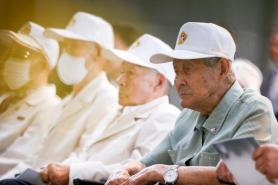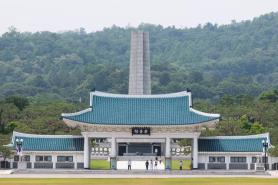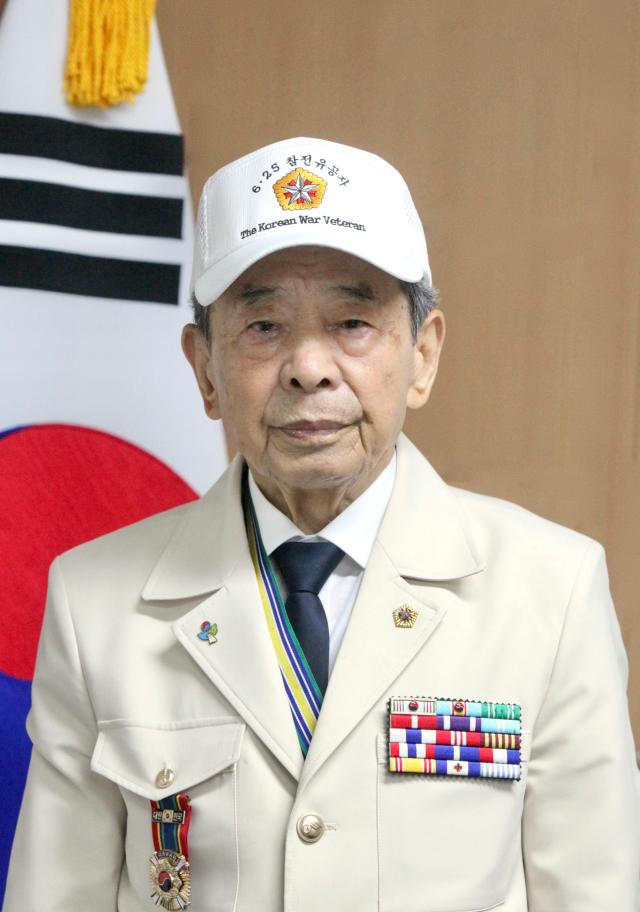
Of over one million Korean war veterans, only 37,953 are alive as of May 2024, according to the Ministry of Patriots and Veterans Affairs. As memories of the war fade among many Koreans, their dwindling number becomes a poignant reminder of the enduring scars left by the war. A 2022 survey of 1,000 Koreans by pollster Gallup Korea revealed a startling reality that a whopping 57 percent in their 30s and 46 percent under 30 did not even know when the war broke out.
To raise awareness of the sacrifices of those who fought in the war, Aju Press met with war veteran Kang Yong-hee last Tuesday, to discuss the haunting memories of the war still lingering in the hearts of war heroes and other vets. Kang, who is currently at the helm of the Korean War Veterans Association in Incheon, shared his unforgettable war experiences and provided his invaluable insights on what the crucible of nations looks like from his prospective.
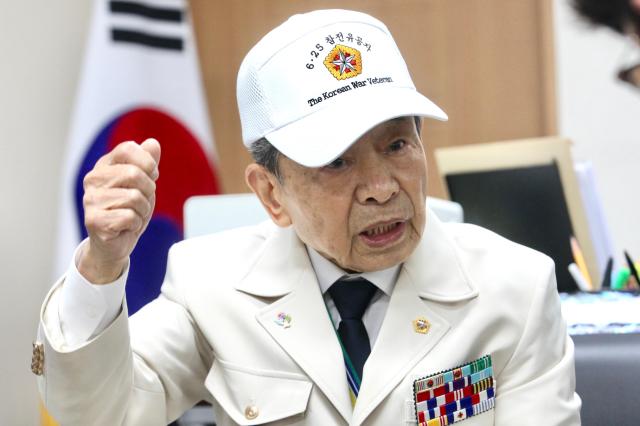
"It was a vast plain along the coastal areas where nearly 90 percent of residents were rice farmers. My parents also farmed there," said Kang who still vividly remembers the place where he cannot go now.
One of his recollections about his adolescent days in his hometown was the sounds of artillery firing. "I heard the ominous sound every day," he recalled. "Military exercises involving firing artillery were routine even before it turned into a war."
The constant barrage of artillery initially masked the gravity of the situation on a peaceful Sunday in the middle of summer in 1950, when the North launched a surprise invasion of the South under the code name "Operation Pokpung," which means "storm" in Korean. That was how the Korean War began, turning the Korean Peninsula into a bloody battleground.
On that fateful day that forever altered the course of Korean history, Kang, who attended a school in Seoul at the time and returned home every weekend, was trying to help his widowed mother with rice farming as usual. At around 4 a.m., he began planting the rice, along with neighbors starting their daily routines. The ominous artillery sounds grew so close that Kang paused and looked around his surroundings with trepidation.
Out of blue, soldiers from a couple of American military hummers suddenly appeared on the scene and delivered a chilling news, "The North Korean forces have invaded the South and started placing their flags here. You should evacuate."
That was the very moment when Kang knew the war had begun. He immediately sought refuge near Ganghwa Island, a mere three kilometers from the North.
"Shortly after arriving on the island, I was drawn to a house and encountered a man in his 50s wearing white clothes. He asked me, 'What brought you here?' I replied, 'The North Korean forces invaded the South, so I am looking for somewhere to hide.'"
Then the man said, "At last, the good day has come. What are you running away from?" His response sent shivers down Kang's spine. In that same moment, Kang realized something was wrong, prompting him to leave immediately.
While hiding on the island, close to the current border with North Korea, he spotted people with guns in civilian clothes who he later learned were guerilla corps. This led him to join an infantry brigade called the "Euji Tiger" under the Korea Liaison Office (KLO), in February 1951. KLO was an American guerrilla unit consisting of locals familiar with the border area's geography and language tasked with operations targeting North Korea.
Kang recounted an episode revolving around the bravery of his fellow soldiers during his service there. In a daring mission in 1951, they ventured into a region in Hwanghae Province, using small boats loaded with recoilless guns. The dangerous maneuver required their determination to inflict maximum damage on enemy forces, even at the risk of their own lives, as it would be very difficult for them to escape in time due to the heavy weight of the guns on the ship.
Kang was overwhelmed with emotions as he tried to describe the soldiers' return from the mission. "Upon their return, they were stroking gun barrels. When I asked why, they said, 'We were so relieved thanks to these' during the battle which made them accomplish their mission," he recalled. "They were all just teenagers or in their early 20s."
The veteran also shared another story from a chaotic retreat during a 1952 amphibious landing at North Korea's Rajin port. Kang saw a fellow comrade, who used to teach English at a middle school before the war, taking shoes from a dead Chinese soldier. He said that exemplified the desperate situation many South Korean soldiers faced back then.
"Most soldiers wore rubber shoes, unsuitable for long walking. So even though withdrawing from a battlefield, he tried to take off the dead men's shoes because he desperately needed new ones."
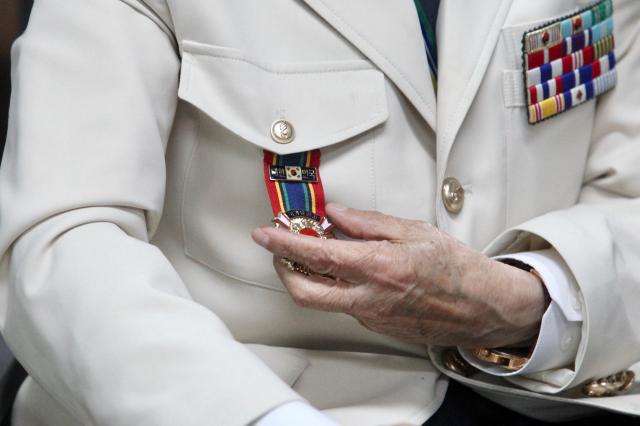
Over seven decades on, the painful memories of the war still linger in the minds of veterans like Kang. There are, in fact, ample historical examples including the Korean War and current events like the ongoing war in Ukraine sparked by Russia's invasion in 2022 as well as the renewed hostilities between Israel and Palestine earlier this year, that illustrate what could transpire.
The Korean War is sometimes called the "forgotten war" by some, but the legacy of war veterans and their service should never be forgotten. For generations to come, Kang's account highlights the importance of honoring those who defended this country. It also suggests that Koreans should take a moment to reflect on the sacrifices made by courageous individuals who fought to protect their country and preserve freedom.
Kang, who apparently has concerns about a complacent attitude toward the North Korean threat and national security among many youngsters who never experienced a war, wrapped up his interview, emphasizing the importance of preventing a second Korean war at all costs.
"What shocked me most about the war was the lack of respect shown towards the war victims with their noble deaths being spoken of so casually. That really frightened me," he lamented. "There seemed to be no feelings attached to them. It made me think that somebody would talk about my death like that, too." He solemnly stressed that no one is safe from any war and there is no guarantee that the tragedy that took place seven decades ago cannot be repeated. "There should be no war again on this land. Never."
Copyright ⓒ Aju Press All rights reserved.

